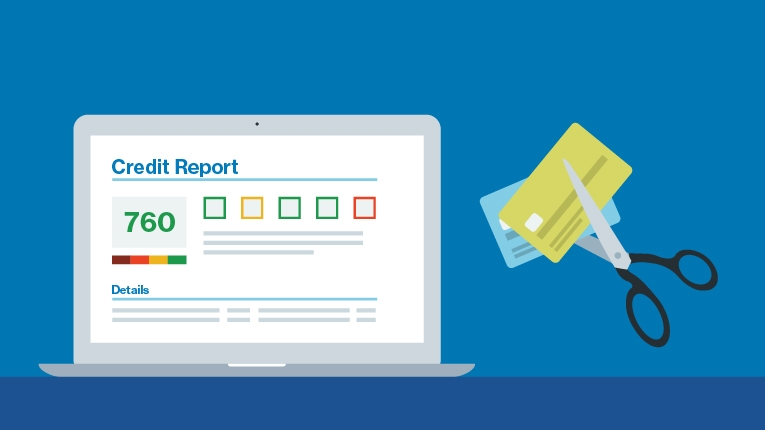How to evaluate your loan offer (and know if it’s right for you)

Evaluate your loan offer by comparing the APR, total cost, including fees, monthly payments, and loan terms. Ensure it aligns with your budget and financial goals, and check for any hidden charges.
It’s essential you know what to look for in a loan offer, especially when it comes to personal loans.
This step-by-step loan evaluation process brings together everything you need to consider when deciding if a loan is good for you—and not just the other way around.
The 5 most important factors to consider when evaluating your loan offer
While there are many loan options out there, you shouldn’t take the first offer you find. When you’re working through a loan evaluation, consider these five key factors:
1. Loan amount
The first and most important question is: how much money do you need, and can you afford a loan with that amount? Answering this starts with clearly describing the purpose of a loan.
For example, what expenses or business goals are you financing if you're a small business owner? If you’re looking for a personal loan, specifically, how do you plan to use the money?
Next, understand that all loans have limits. Loan limits typically are a function of your income, your credit profile, and the value of any collateral being used, meaning you likely can’t (and shouldn’t) have a salary of $50,000 and expect to receive a loan for $1 million.
Look for a loan you can easily afford to repay and that fits within your budget. If the loan amount you’re offered (and can afford) doesn’t cover all of your needs, maybe a loan for a lower amount is a good first step.
2. Loan type
After you decide on the loan amount you need, evaluate what type of loan would make the most sense given your situation. While a personal loan can be used for anything from home repairs to paying medical bills or consolidating high interest credit card debt, you may want to apply jointly with a co-borrower (for example, if you’re working on repairing your credit report and your spouse has a higher credit score).
Or a consolidation loan that pays down your credit card balances for you directly could be the answer to helping you responsibly control how you use the loan proceeds.
3. Interest rate and APR
Interest is calculated as a percentage of your principal loan balance (and incorporated into your monthly payment amount) for the privilege of borrowing the lender’s money. The annual percentage rate (APR) represents the total, or true, cost of your loan, because it includes your interest rate plus any additional fees charged by your lender.
The interest rate you’re offered will vary depending on factors such as your creditworthiness, the size of the loan, and your lender, and can tack on thousands of dollars to your loan. So not only should you compare interest rates between two or more lenders, also compare how much money each lender is offering versus the loan’s APR.
4. Prepayment
Some loans include what’s known as a prepayment fee (or, penalty)—meaning it will cost you extra if you decide to pay your loan off early. Check for this (sometimes hidden) fee in your loan agreement. Better yet, understand what you’re agreeing to before accepting the loan offer. Once you’ve accepted a loan with a prepayment fee, this usually can’t be changed after the fact.
5. Terms
Making sure you understand—and can deal with—all the terms of your loan offer is essential to a good loan evaluation. The terms include the length of time you have to repay, whether or not you have a fixed or variable interest rate, and the collateral used (if any).
Questions to ask yourself when evaluating loan offers
Does the loan amount meet your needs?
You’ll want to consider how much lenders are willing to lend you, and how this matches your financial needs and your budget. Some people start by taking out a loan that is less than what they need because it is the largest loan they can afford that fits within their budget. This is a rational move because even if a loan offer is for less than what you ultimately need, the loan can help ease your cash flow and debt burden until you’re able to get perhaps another, second loan to pay down your remaining debt.
For example, if you’re consolidating credit card debt, you can use the funds received from a personal loan to pay off credit cards with the highest interest rates first. Since the interest rate on a personal loan is often much lower than on credit cards, this will save you in interest in the long run.
Once you’ve paid down those higher rate cards, then you can roll those payments you were making into your remaining debt, which will help you get the rest of your balances to zero faster (assuming, of course, you don’t take on any additional debt).
Can you afford the monthly payment?
This is the most important question you should ask yourself. If you accept an offer on a loan with a monthly payment that is more than you can manage or afford, you could quickly rack up penalties and late fees, or even put yourself at risk of default.
Before agreeing to an offer, a good rule of thumb is first to understand your debt-to-income ratio (DTI). Your DTI is how much you’ll owe monthly on all your debts relative to how much you earn. Calculating your DTI is relatively simple, and most financial advisers recommend aiming for a DTI ratio of 36% or less.
Is the interest rate reasonable, and how will you know?
Interest rates largely depend on your personal credit history, credit score, and how much debt you’re taking on relative to your income level (or in the event of a secured loan, the value of your collateral). Regardless of what interest rate your neighbor may have received or the national average, the only interest rate that really matters is what you are most likely to be offered today, given your current credit score and history.
Thankfully, it’s easy to compare your loan offers against multiple other lenders. Pre-applying will give you a good sense of rates without a hard inquiry against your credit score (just be sure your pre-application is a soft inquiry only). To learn more about the two types of credit inquiries, read our blog post on soft vs hard credit check.
How quickly do you need the money?
The loan application and approval process is fairly quick for certain loans (like a personal loan). Once you’ve been approved, online marketplaces or lenders generally tend to be the quickest, with a quick and easy application process. Approvals can be as quick as one to three business days.
How quickly can you pay it off?
All things equal, the faster you can pay off a loan, the less it will cost you in interest. Shorter term loans, and loans without a prepayment penalty, can be paid off quickly, but be sure the terms of your loan offer are reasonable. A loan should help relieve financial pressure, not cause it.
Will it benefit you financially?
A good way to evaluate if you would benefit financially from a loan offer is to estimate the return on investment compared to how much you’d pay in interest. If you own a small business, you can estimate how much money you’ll earn off your assets compared to how much it will cost you to pay them off monthly.
When it comes to paying off credit card debt, it makes sense to compare the total cost of paying off your credit card using your using your minimum monthly payment amount (look for this on your monthly credit card statement), to what you would be paying with a personal loan.
How to determine if a loan offer is right for you
Once you know if a loan offer makes sense on paper, consider if it makes sense for you now and in the future. Ask yourself the following questions before committing to the loan:
Can I afford the monthly payment?
If you can afford the monthly payments and the loan will help you simplify and de-stress your financial life (e.g., one monthly payment versus multiple bills and due dates), then accepting the loan offer might make sense.
Will this loan help me save money in the long run?
Another important consideration is whether the loan will help you get ahead financially—by helping you save money (on interest and fees)—over the long run. Consolidating multiple high interest rate credit cards into a lower, fixed rate personal loan, or refinancing your existing auto loan to one with a lower rate, are both options that can save you money over time.
FAQ
What should I know before I get a loan?
Your credit history and credit score largely defines your loan rate and terms. While you can—and should—shop around for the best loan, pulling your credit reports, disputing any mistakes, and taking steps like paying down your debts, can help boost your score before you apply for a personal loan.
Will I save money by getting a loan?
It depends on your loan terms and your personal financial circumstances. For example, if you’re taking out a personal loan to pay off debt, you could save money if the interest rate on your personal loan is lower than what you’re currently paying.
Is this a trusted lender?
Finding a lender you trust is important. Look for lenders with a good Better Business Bureau rating and check with the CFPB’s Consumer Complaint Database to see what problems customers have raised. You can also check customer submitted reviews on sites like Trustpilot and Google to get a sense of how a lender operates and supports its customers.
The bottom line
You have a lot to consider when evaluating a loan offer. Just remember that doing a little research up front can make a big difference for your financial future. Compare rates and terms, read the fine print, and don’t be afraid to shop around and ask lots of questions.




